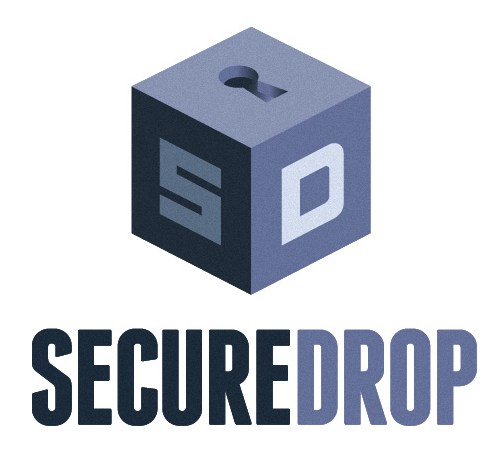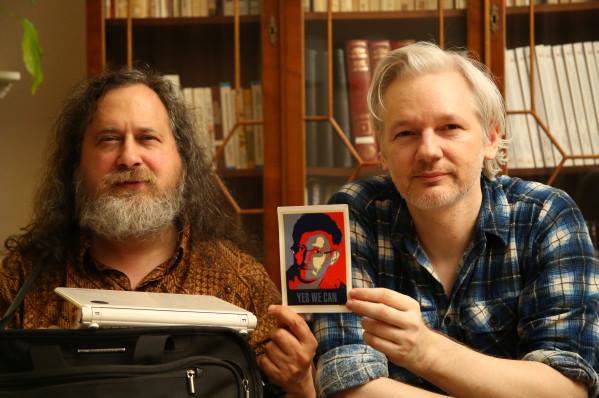FOSS Week in Review U.S. giving up control of DNS root zone On Friday, March 14, the U.S. announced it’ll relinquish control of the Internet’s…
Posts tagged as “privacy”
FOSS Week in Review
Java is the target for half of all exploits
We’ve been saying for a couple of years now that Java isn’t safe and have been urging everyone who will listen to disable Java in the browser. As we’ve been saying this, comments to our articles on Java security have filled with folks wagging a finger and “reminding” us that Java is only a threat in the browser, that otherwise Java is safe.
That is wrong. The only time Java is safe is when it’s in a cup. According to an article published on IT World, researchers say that Java is now responsible for fully half of the exploits discovered in December.
FOSS Week in Review
NSA involved in industrial espionage
Another big non-surprise this week in the continuing saga of the NSA. It appears that our beloved spy agency has been using their secret powers for the purpose of uncovering industrial secrets from foreign companies. So much for the separation of business and state. Reuters reported that in a television interview with a German TV network, Edward Snowden said the agency doesn’t confine its intelligence gathering to items of national security.
“‘If there’s information at Siemens that’s beneficial to U.S. national interests – even if it doesn’t have anything to do with national security – then they’ll take that information nevertheless,’ Snowden said…”
Even the Republicans are jumping on the stop-the-NSA bandwagon, which is rather surprising.
Now that the celebrating is out of the way, I thought it might be time to take a look at some of the stories we covered on FOSS Force this year.
1. The NSA. The biggest story to come down the wire this year undoubtedly had to do with Edward Snowden’s revelations about the National Security Agency’s bag of dirty tricks. Even those of us who have long understood that the Internet isn’t necessarily a place to expect privacy were surprised at how deeply the NSA has managed to reach into the Internet. Odds are, if you’ve been using social networks, everything you’ve posted is now on file with the NSA. What’s worse, every email you’ve sent probably has a copy resting on a NSA server somewhere.
Christine Hall has been a journalist since 1971. In 2001, she began writing a weekly consumer computer column and started covering Linux and FOSS in 2002 after making the switch to GNU/Linux. Follow her on Twitter: @BrideOfLinux
FOSS Week in Review
New FCC Chairman a bad omen for net neutrality?
There might be some changes upcoming to the FCC’s position on net neutrality according to an article by Jon Brodkin posted Wednesday on Ars Technica. It seems as if the new Chairman, Tom Wheeler, wouldn’t necessarily cry “foul” if ISPs decided to take money from the likes of Hulu or Netflix for fast lane access.
“Wheeler (a former lobbyist for the cable and wireless industries) spoke positively about the [Open Internet] order but said he wouldn’t mind if Netflix has to pay for a faster lane to consumers while answering questions Monday after a policy speech at Ohio State University.
“‘I am a firm believer in the market,’ he said. ‘I think we’re also going to see a two-sided market where Netflix might say, “well, I’ll pay in order to make sure that you might receive, my subscriber receives, the best possible transmission of this movie.” I think we want to let those kinds of things evolve. We want to observe what happens from that, and we want to make decisions accordingly, but I go back to the fact that the marketplace is where these decisions ought to be made, and the functionality of a competitive marketplace dictates the degree of regulation.’
“Wheeler’s comment implies that he believes the Open Internet Order already allows such arrangements or that he wants to change it.”
I shouldn’t have to say this, but child pornographers and users of child porn are scum and deserve just about any sentence meted out to them. This absolutely doesn’t mean, however, that we willy-nilly throw their rights out the window in order to catch them. Remember, in the United States we still claim to believe in the concept of “innocent until proven guilty.” If they forgot to teach you that in school, Google it. Try “Bill of Rights” as your search term.
With that out of the way, let’s get into our story…
 It appears more and more that the malware caper discovered this weekend on the TOR network was all about harvesting MAC (media access control) addresses. We’ll probably never know the whole story of who’s behind this, but we’re getting enough pieces so that we can hobble together a broad picture of what happened.
It appears more and more that the malware caper discovered this weekend on the TOR network was all about harvesting MAC (media access control) addresses. We’ll probably never know the whole story of who’s behind this, but we’re getting enough pieces so that we can hobble together a broad picture of what happened.
Christine Hall has been a journalist since 1971. In 2001, she began writing a weekly consumer computer column and started covering Linux and FOSS in 2002 after making the switch to GNU/Linux. Follow her on Twitter: @BrideOfLinux
I’m beginning to rethink Yahoo, just as I reappraised my feelings on the old Novel after they went to bat against SCO for the benefit of IBM and Linux.
On Monday, the Sunnyvale, California company pulled a honest-to-goodness rabbit out of the hat when they managed to persuade a FISA court to order the Obama administration to declassify as much as possible of a 2008 court decision justifying Prism before releasing it to the public.
Yahoo’s victory came one day before Microsoft went into damage control mode by denying allegations revealed by the publication last Thursday of documents leaked to the Guardian newspaper and website.
Christine Hall has been a journalist since 1971. In 2001, she began writing a weekly consumer computer column and started covering Linux and FOSS in 2002 after making the switch to GNU/Linux. Follow her on Twitter: @BrideOfLinux
FOSS Week in Review–Part 2
Now that we got last week out of the way, let’s look at what happened this week–or at least news that came to our attention this week…
You can now actually own digital comics
Digital rights and anti-DRM activists should be a little happy to learn that a major player in the comics’ world has decided to make actual ownership of its comics possible.







